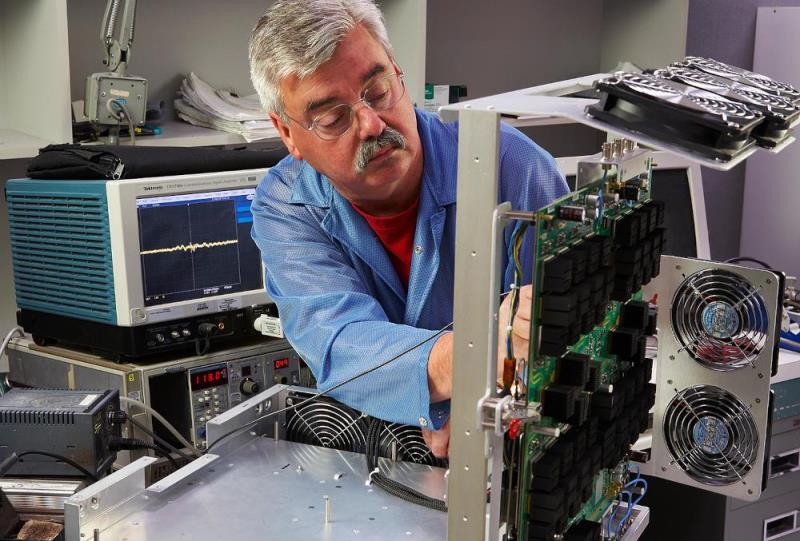

A decision to purchase a calibration service, based on price alone, may result in hidden costs and the potential risk for quality issues to affect your product or service.
What is your risk tolerance for product recall or consumer liability? This overview provides tips on evaluating calibration service providers and their service offerings, and explains why the lowest cost calibration service provider may not be the lowest total cost to your business.
What is included (and not included) in a "low-cost" calibration?
Like many businesses, calibration service providers operate and compete based on profit margin. "Low-cost" calibration providers are under greater internal pressure to reduce costs wherever possible. Investment in high quality calibration standards, automation software, and qualified personnel may not be high priorities at a "low-cost" calibration provider. The less time a "low-cost" calibration provider spends calibrating an instrument, the less they need to charge, and the more competitive they appear to be on paper.
When "low-cost" calibration providers do not have the equipment or expertise to complete a comprehensive calibration, they may consider shortcuts, such as "functional tests only" of certain parameters, the use of calibration standards that do not fully meet the requirements outlined in the calibration procedure, or allow inexperienced or partially qualified technicians to perform the work. "Low-cost" calibration labs may also reduce calibration time and increase margins by "shortcutting" industry recommended procedures. For electronic items, the most tempting procedure to bypass is warm-up time.
It is important to have confidence that the calibration provider has the financial resources, technical expertise, and customer commitment necessary to fully meet their customer expectations and needs. The provider must also have a quality philosophy that is aligned with the customer's expectations. To ensure this is the case, you should ask:
- Does your calibration capability cover all of the equipment I need you to calibrate? (Carefully review the laboratory's published ISO/IEC 17025 scope of accreditation.)
- What do you do when you do not have all of the calibration standards specified in a comprehensive calibration procedure – how do you determine appropriate standard substitutions?
- Are you part of a large network of labs with access to the right equipment and technicians with unique expertise to best service my equipment?
- Do you have access to subject matter experts who can advise you on proper procedures?
Your calibration provider should be prepared to fully review their technical capabilities and quality processes with their customers.
How do you know if you are getting a quality calibration?
To find the best service provider for your equipment, contact the calibration supplier directly to fully understand their quality management system. It is a good idea to ask the provider to explain their internal quality assurance program. Ask what, if any, external assessments are made of the laboratory.
The calibration service provider has a requirement to manage the calibration program for their laboratory equipment. Ask the provider how they determine the calibration cycle of their laboratory standards. Do they perform intermediate checks on laboratory equipment between the calibration interval cycles to instill and ensure confidence of measurements?

How does the calibration service provider manage significant nonconforming, or out-of-tolerance laboratory standards? Is there a history of too many or too few incidents? Answers to these questions will help determine if the provider has suitable process control. You do not want a calibration provider who has a history of "false pass" or "false fail" reporting. Either of these results represent a potential hidden cost or risk to your product or service quality.
Why opt for comprehensive calibration procedures?
Quality calibrations require the use of comprehensive calibration procedures. These are often available from instrument manufacturers or other reputable sources. These procedures specify uncertainty levels for calibration standards used as well as pre-calibration steps to ensure proper equipment operation. They also define the required calibration points used to verify an instrument's full range of operation.
A "low-cost" calibration service provider may only provide calibration to "face specifications," or specifications found on an instrument's marketing data sheet. Data sheets usually offer only high and low values, enough to enable end-users to evaluate an instrument's range and performance when making a purchasing decision.
Defined, comprehensive calibration procedures for this same instrument include calibration points that cover the entire operating range of the instrument. While there is currently no directive preventing the issuance of a calibration certificate using only "face specifications," metrology professionals recognize that these types of procedures rarely test an instrument's full capability or meet the customer expectation. Be aware of service providers who try to educate you on why you need less than a comprehensive calibration.
To ensure a calibration service provider is using defined, comprehensive calibration procedures, ask the following questions:
- Will you show me the calibration procedures you are using and the source of those procedures?
- Does your quality policy provide assurance that these procedures will be used consistently over time?
- How do technicians select calibration procedures?
- Are you able to provide full calibration data and accredited measurement uncertainties for all data points?
What do you get with a Tektronix calibration?
Tektronix commitment to quality delivers results. Tektronix has never had a laboratory's ISO/IEC 17025 accreditation withheld or withdrawn by our accrediting bodies.
Tektronix operates Tektronix, Keithley and Fluke original equipment manufacturer (OEM) and multi-brand commercial calibration and repair service laboratories worldwide. Our laboratory network maintains the industry's broadest range of instruments, standards, comprehensive procedures and qualified calibration professionals to calibrate and maintain products at their peak performance. Tektronix laboratories are accredited in their respective countries and adhere to international ISO/IEC 17025 standards. These facilities are staffed by technical experts who follow the proper procedures when calibrating any brand equipment.
Learn more about Tektronix calibration services.


